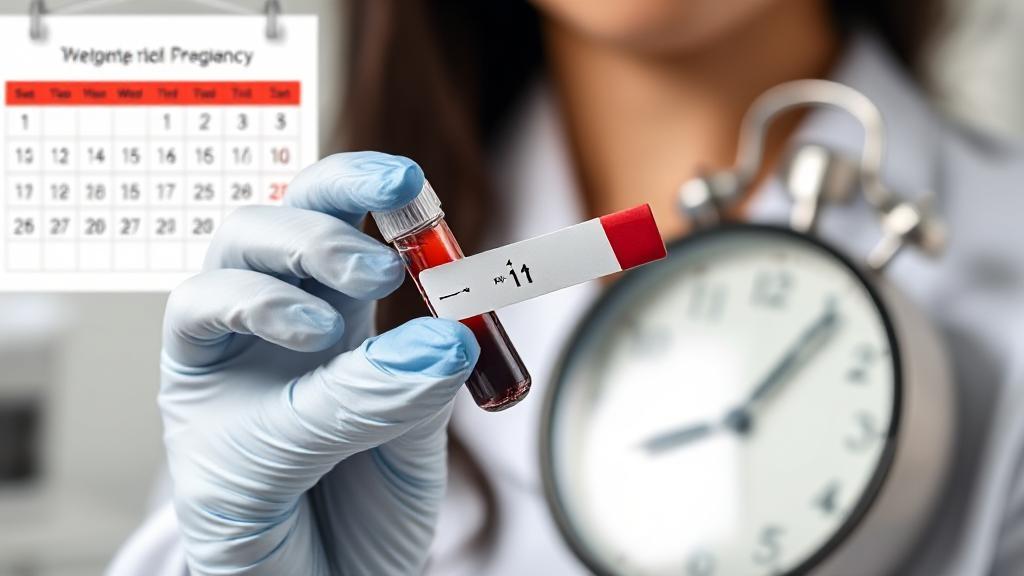Introduction
Blood pregnancy tests are among the most reliable methods for confirming pregnancy. Unlike home pregnancy tests that detect hCG (human chorionic gonadotropin) in urine, blood tests provide more detailed information and can detect pregnancy earlier. Understanding the timeline for blood pregnancy test results can help manage expectations and reduce anxiety during this significant time.
Types of Blood Pregnancy Tests
There are two main types of blood pregnancy tests:
- Qualitative hCG Test: Provides a simple "yes" or "no" answer about pregnancy by checking for the presence of hCG in the blood.
- Quantitative hCG Test (Beta hCG): Measures the exact amount of hCG, offering more detailed information about pregnancy progression and potential issues.
How Blood Pregnancy Tests Work
Blood tests detect hCG, a hormone produced after a fertilized egg implants in the uterus. The timeline typically follows this pattern:
- Fertilization occurs
- Implantation happens (6-12 days after fertilization)
- hCG production begins
- Hormone becomes detectable in blood (2-3 days after implantation)
Timeline for Detection and Results
Blood tests can detect pregnancy around 6-8 days after ovulation, potentially before a missed period. The accuracy varies by timing:
| Days Past Ovulation | Accuracy Level |
|---|---|
| 6-8 days | 75% |
| 9-11 days | 87% |
| 12+ days | 99% |
Results Timeline
- Laboratory Processing Time: Most labs process results within 24-48 hours
- Same-day Results: Some clinics with in-house labs offer faster processing
- Healthcare Provider's Schedule: Communication of results depends on provider availability
Factors Affecting Test Results
Several factors can influence accuracy and timing:
- Implantation timing
- Individual hormone levels
- Test sensitivity
- Time of day
- Recent miscarriage
- Fertility treatments
- Certain medications
- Multiple pregnancy
- Ectopic pregnancy
"Testing too early, even with a blood test, can lead to false negatives if the hCG levels haven't reached detectable levels yet." - American Pregnancy Association
Follow-up Testing and Monitoring
For optimal results, healthcare providers often recommend:
- Initial blood test
- Follow-up test 48-72 hours later
- Monitoring hCG progression (levels should roughly double every 48-72 hours)
Digital Monitoring
Many healthcare providers offer digital portals where patients can:
- Access test results online
- Track hCG progression
- Schedule follow-up appointments
- Communicate with healthcare team
What to Do After Receiving Results
Positive Result
If positive, schedule an appointment with your healthcare provider to:
- Discuss next steps
- Begin prenatal care
- Calculate estimated due date
- Consider lifestyle modifications
Negative Result
A negative result, especially if taken early, doesn't necessarily indicate absence of pregnancy. Consider retesting after a few days if:
- Your period doesn't start
- You have pregnancy symptoms
Warning Signs
Seek immediate medical attention if experiencing:
- Severe abdominal pain
- Heavy bleeding
- Dizziness
- Fever
For more detailed information, refer to resources like the American Pregnancy Association, Mayo Clinic, or the National Institute of Child Health and Human Development.
